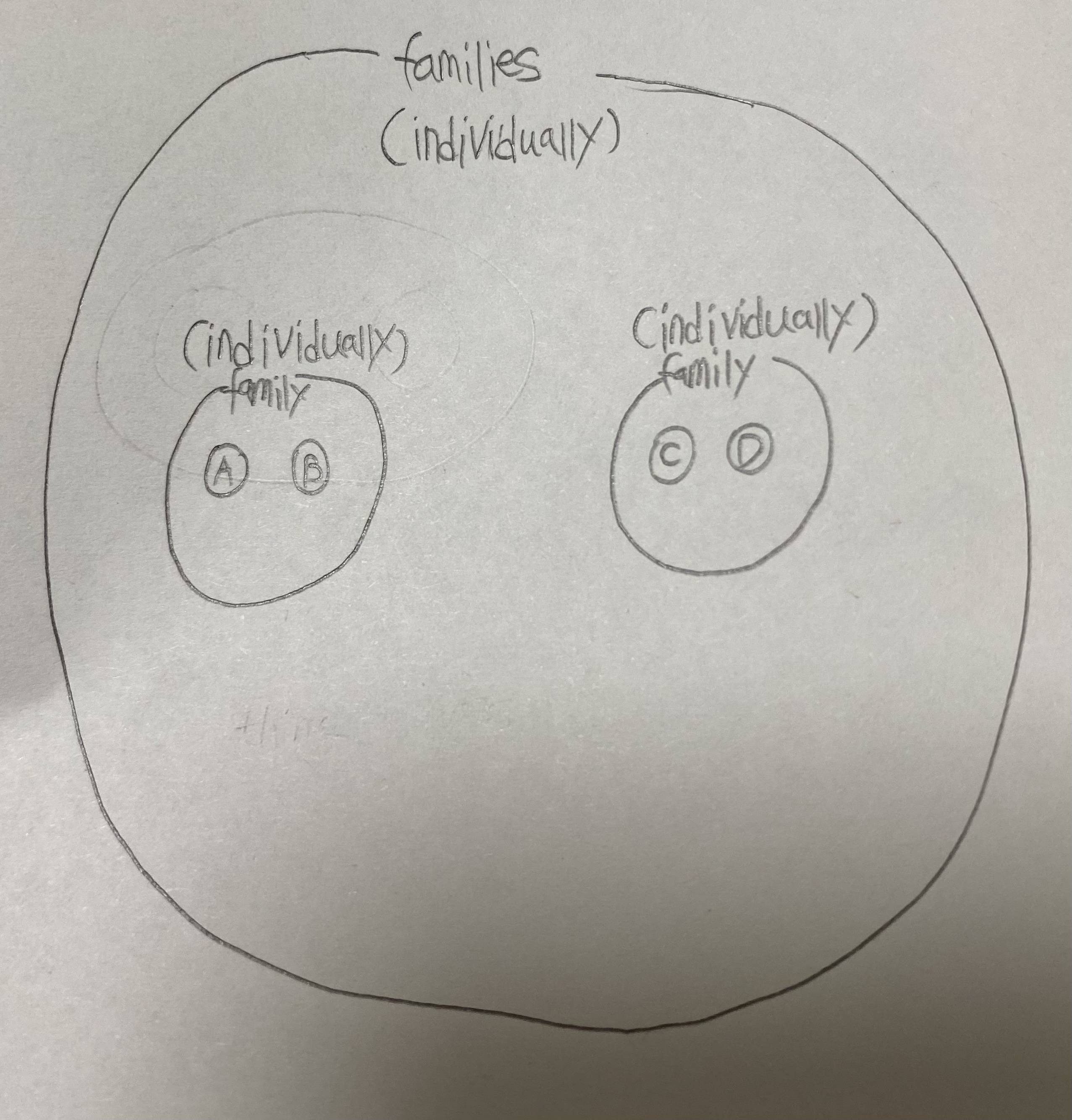Context: There are two families. Family X have a car each, and Family Y also have a car each.
Can “two families have a car each” mean “A, B, C and D have a car each”?
I mean, families are regarded individually here. In this case, can each of families be also re-regarded individually?
Or can a collective noun be considered individually only when a collective noun is singular?

